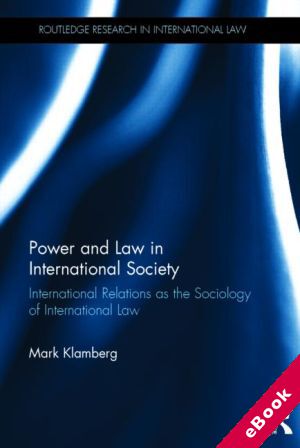
The device(s) you use to access the eBook content must be authorized with an Adobe ID before you download the product otherwise it will fail to register correctly.
For further information see https://www.wildy.com/ebook-formats
Once the order is confirmed an automated e-mail will be sent to you to allow you to download the eBook.
All eBooks are supplied firm sale and cannot be returned. If you believe there is a fault with your eBook then contact us on ebooks@wildy.com and we will help in resolving the issue. This does not affect your statutory rights.
This book assesses how international law and its institutions may be relevant and influence the course of international relations, in other words the relationship between power and law. This is done in relation to five regimes; international trade, environmental protection, human rights, criminal justice and use of force.
The majority of international law literature focuses on the content of international rules (i.e. regimes) but has a tendency to ignore why these regimes exist and to what extent the rules actually affect state behaviour. The assumption is that states follow international law when the reality sometimes tells us differently. Turning to international relations literature, some scholars - as represented in their publications – focus on theories based on the distribution of power among states and ignore the existence and relevance of international law. In contrast, Power and Law in International Society examines theories of international relations, international law and formal institutions as well as an account of empirical research on the relevance of international law for the behaviour of states.
This book has three main themes. First, the book will explain the foundations of international society from an inter-disciplinary perspective relaying on legal studies as well as international relations. Second, the book will examine variations in the degree of legalization in terms of obligation, precision, delegation and state acceptance. Finally, the book will give an account of the empirical research on the relevance of international law for the behaviour of states.
This book will be of great interest to scholars of international law and international relations.